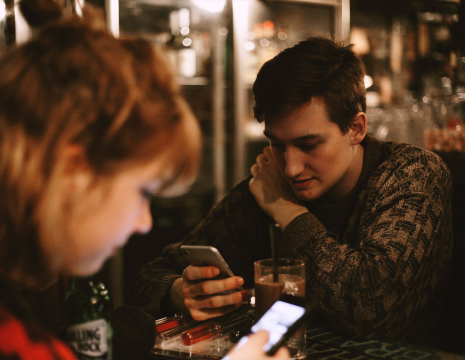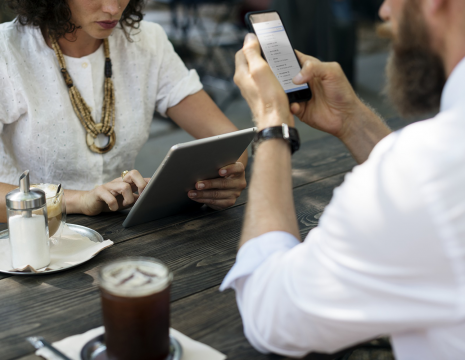Unplugged: Why our app is disconnected from social media
It was recently reported that the data of 50 million Facebook users was harvested to influence the 2016 presidential election. As a result, the hashtag #DeleteFacebook began trending on Twitter yesterday, as users shut down their accounts in protest.
In the same week, model Gigi Hadid was seen sporting a phone case bearing the slogan ‘Social Media seriously harms your mental health’.
The complex relationship between mental health, personal safety and social media is one in which we’ve invested much time and thought. As a result, you’ll find a deliberate disconnect between our app and any form of social media. Here’s our logic.
The security risks of social sign-in
In many apps, you’ll find an option to ‘log in with Facebook’, or other social media accounts. This benefits both the user (one fewer password to remember) as well as the app provider (offering this sign-in option has been shown to increase active user numbers).
But it comes with risks, the foremost being security. If someone else picks up your phone, a couple of taps and they’re logged into your account. Additionally, it is thought that ‘daisy chaining’ your accounts – i.e. linking them together through social media, could make it easier for hackers to access your personal data.
As a company that provides confidential self-help programmes for stress, anxiety and depression, we take online security extremely seriously. For us, the convenience of social log-in just isn’t worth the risk.
Social media and mental health
Gigi Hadid’s mobile phone case may seem insignificant compared to reports of data breaches and online abuse. But it raises an important question: if a professional model with access to stylists, makeup artists and photographers, feels her mental health is being harmed by social media, what is the risk to, say, a vulnerable teenager? The figures are telling: ‘trolling’ or cyberbullying prompted over 24,000 calls to Childline in 2016/17.
And it’s not just children who experience it. In 2015, TV presenter Sue Perkins was forced to close down her Twitter account when rumours that she was the next Top Gear Presenter prompted death threats. And that’s not to mention the countless cases involving those not in the public eye.
This indicates a growing need for people to find a ‘safe space’ away from social media. Even though logging in with your Facebook or Twitter account doesn’t necessarily influence the actual user experience of an app, it still creates both a digital and a psychological connection between the two platforms. Not particularly healthy if you’re attempting a social media ‘detox’.
‘Online fakeness’: A warning from Prince William
In a recent visit to a London school, Prince William warned youngsters about the rise of ‘online fakeness’. He expressed concern over how ‘touched up’ pictures could be affecting young people, and particularly young girls. Talking to one of the pupils, he said “Don’t try and recreate or think that’s what you’ve got to aim for – there’s a lot of fakeness online so don’t worry about that.”
The visit was part of his Stop, Speak, Support campaign, which aims to tackle cyberbullying.
The temptation to portray a certain image is another reason we want to disconnect our app with the user’s social media ‘persona’. One of our app’s features is the ‘Moments’ section. This is a place for users to record daily thoughts and experiences through pictures and text – warts and all. My Possible Self director Fleur Wilkinson explains: “The ‘Moments’ feature is like a digital diary that’s for your eyes only, so you can be 100% honest.”
Recalling her own personal experiences, she adds: “I’ve looked back on photos of myself looking really happy, when in fact moments before I’d been feeling sad or anxious. We often try to convey a certain image on social media that’s not an accurate reflection of the truth.”
The positive side of social media
All this has to be balanced with the fact that social media can help connect people over great distances, and can provide a lifeline for those who may find it harder to go out and meet people.
There are steps we can all take to more tightly control our own social media experience. Keeping our accounts private, unfollowing accounts that make us feel bad, filtering out certain keywords or hashtags from our Twitter feeds and cutting down time spent online can all help. Read more tips in our blog, Six digital tips for better mental health in the smartphone age.
The truth is, our relationship with social media is complex, and continues to evolve as we journey deeper into the digital age. What remains certain for us is that our app will always remain detached from social media in order to provide a virtual safe space for our users.
My possible self is a UK-based digital self-help programme. Using clinically proven content, it is designed to reduce stress, anxiety and depression through learning activities and self-monitoring. Find out more on our home page, or get the app here. Subscriptions cost £5.99 per month or £59.99 per year.

